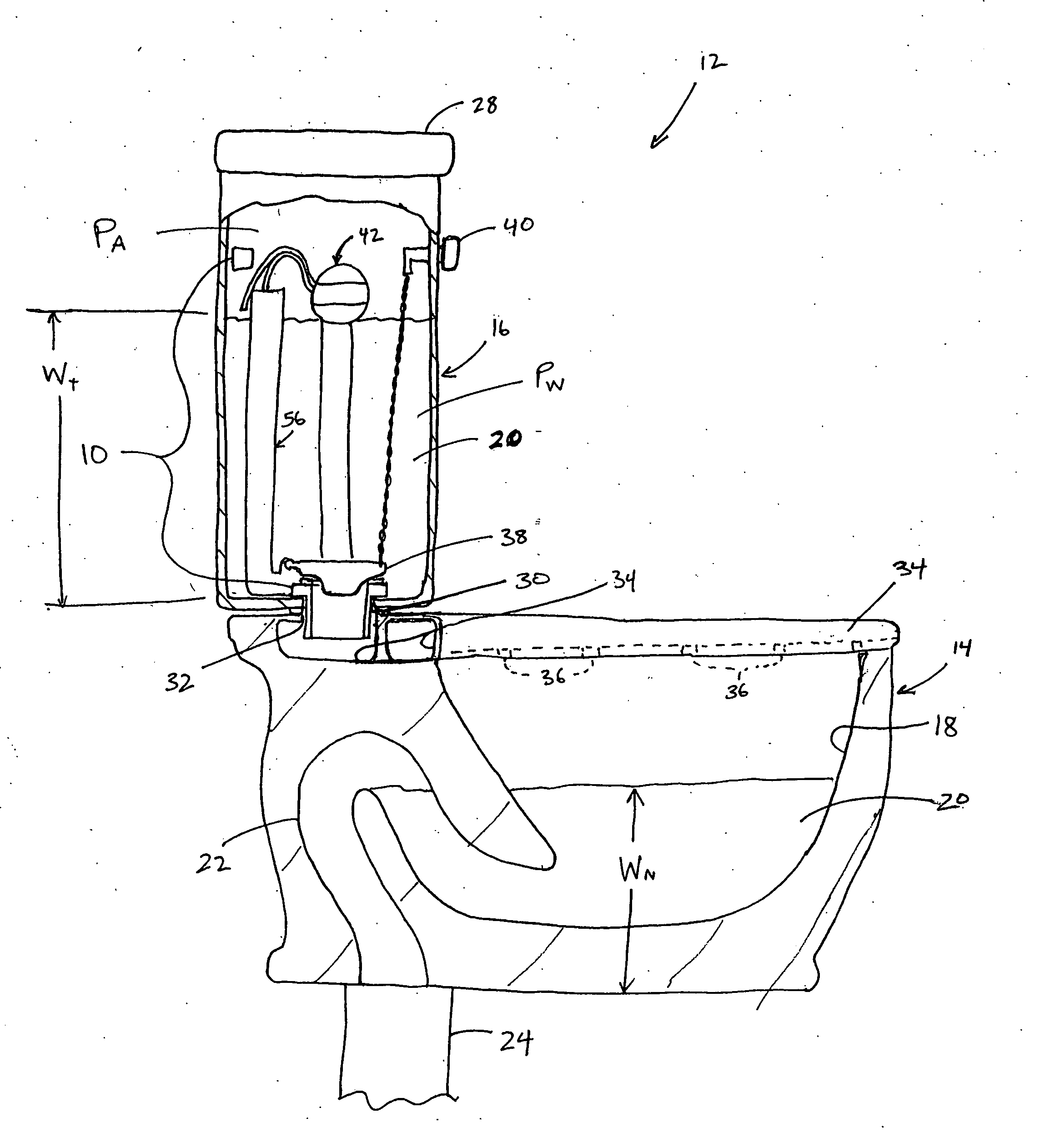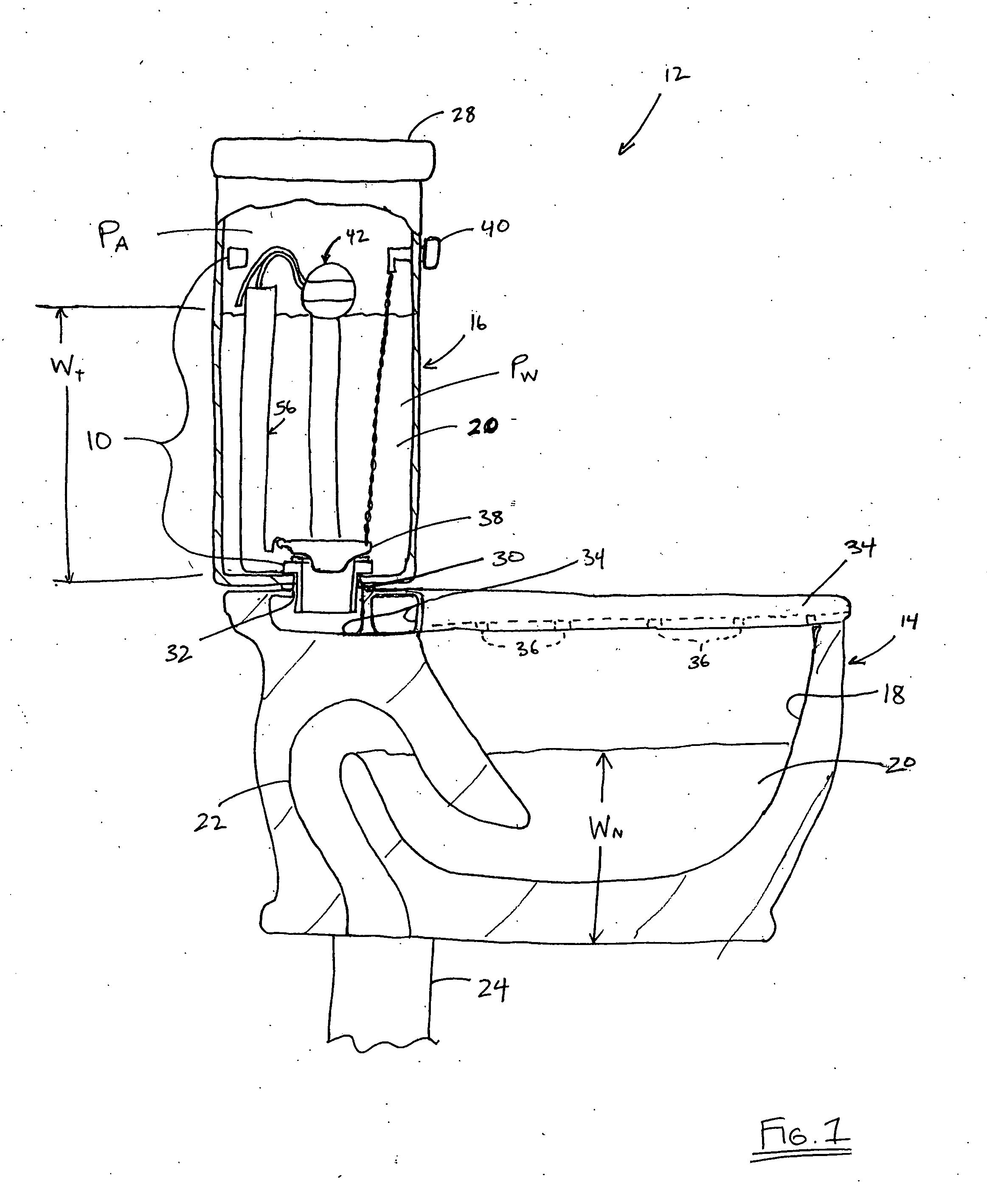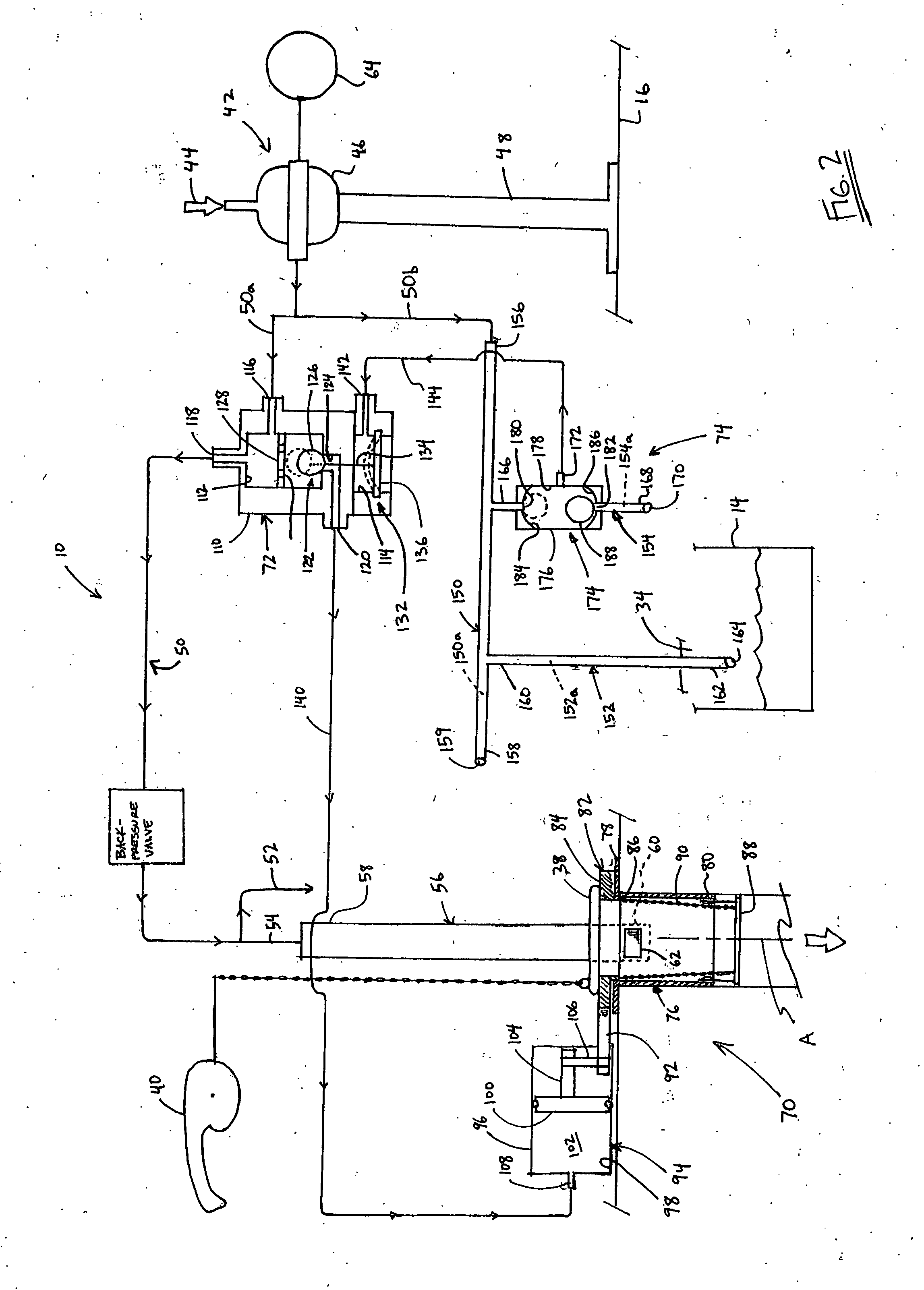Toilet overflow prevention device
a toilet and overflow technology, applied in the field of toilet systems, can solve the problems of preferably requiring a low level of installation skill, and achieve the effect of low installation skill and cost-effectiveness
- Summary
- Abstract
- Description
- Claims
- Application Information
AI Technical Summary
Benefits of technology
Problems solved by technology
Method used
Image
Examples
Embodiment Construction
[0021]FIG. 1 illustrates a preferred embodiment of the toilet overflow prevention device 10 incorporated within a toilet 12. The toilet 12 preferably is of a conventional configuration and includes a base 14 and a tank 16 supported on the base 14. Although the overflow prevention device 10 is described herein in the context of such a toilet 12 having a base 14 and a tank 16, the device 10 may be adapted for use with toilets having alternative configurations, as will be appreciated by one of skill in the art in view of the present disclosure.
[0022] The base 14 defines a bowl 18, which is configured to hold a volume of water 20. A siphon tube 22 connects the bowl 18 with a wastewater plumbing system 24. The siphon tube 22 extends in an upward direction from a lower portion of the bowl 18 and then curves into a downward direction toward the lower end of the base 14 to meet the wastewater plumbing system 24. Accordingly, the height of the upper curve 14a determines a normal water level...
PUM
 Login to View More
Login to View More Abstract
Description
Claims
Application Information
 Login to View More
Login to View More - R&D
- Intellectual Property
- Life Sciences
- Materials
- Tech Scout
- Unparalleled Data Quality
- Higher Quality Content
- 60% Fewer Hallucinations
Browse by: Latest US Patents, China's latest patents, Technical Efficacy Thesaurus, Application Domain, Technology Topic, Popular Technical Reports.
© 2025 PatSnap. All rights reserved.Legal|Privacy policy|Modern Slavery Act Transparency Statement|Sitemap|About US| Contact US: help@patsnap.com



